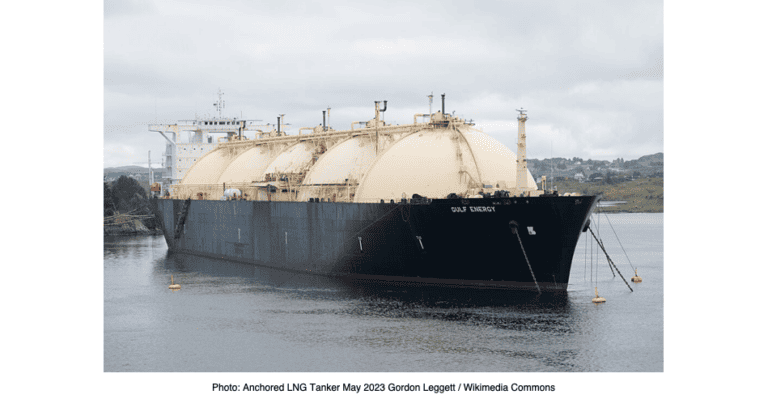
Why is nuclear energy an important influence on both natural gas and hydrogen futures?
The Feb 6, 2024 Energy Gang podcast was titled “A pause in US gas export approvals: a big win for the climate?US hits the brakes on gas exports!” It was described as a gassy episode with a focus on international natural gas trading, the impact of the Biden Administration’s pause on issuing new permits that…
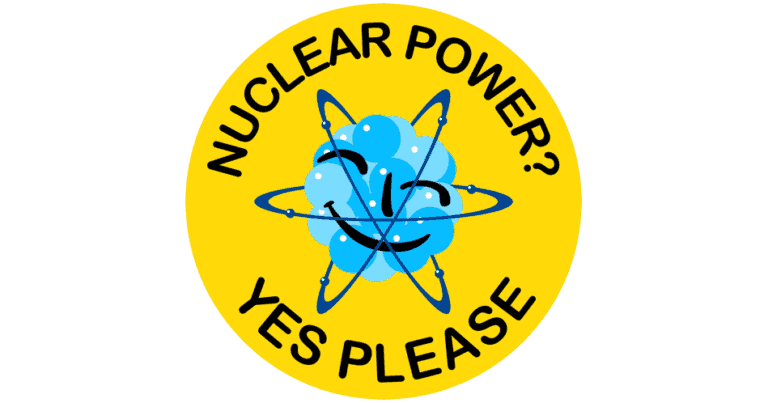
Pro-nuclear advocates should stop bashing advanced nuclear
I wish I knew why some nuclear advocates feel that it’s worth their time to spread as much negative information as they can find about the potential utility and value of advanced nuclear…
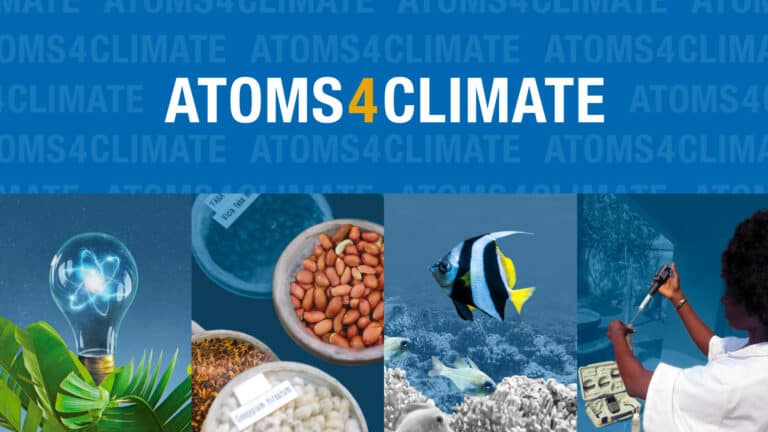
Why would climate publications disrespect nuclear fission?
Here is another instance of climate reporting that treats nuclear fission as if it barely exists. Before COP28, Cipher published an “Exclusive” that led off with “The United States is working behind the…
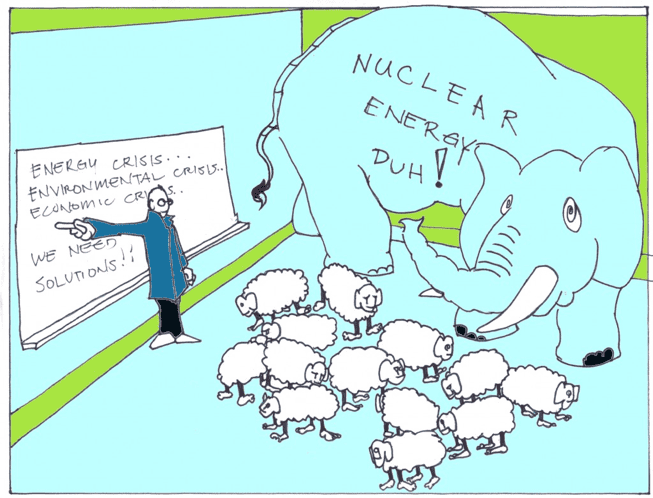
Why did The Energy Gang overlook the newsworthy impact of nuclear energy on COP28?
The Energy Gang’s Dec 15 episode discussed the major outcomes from COP28. Ed Crooks (@Ed_Crooks), Dr. Melissa Lott @mclott, and Amy Harder (@AmyAHarder) completed the show without mentioning nuclear energy. That episode of…

Atomic Show #314 – Economies of scale for micro, small, medium, large reactors – with James Krellenstein
James Krellenstein is a physicist, consultant and nuclear energy historian. He is currently employed as a senior advisor to Global Health Strategies. He started up their decarbonization practice with an emphasis on nuclear…

Atomic Show #314 – Economies of scale for micro, small, medium, large reactors – with James Krellenstein
James Krellenstein is a physicist, consultant and nuclear energy historian. He is currently employed as a senior advisor to Global Health Strategies. He started up their decarbonization practice with an emphasis on nuclear…

Atomic Show #313 – Stefano Buono, Founder and CEO of Newcleo
Stefano Buono is a physicist and the successful founder of Advanced Accelerator Applications, a multibillion dollar company that pioneered the use of several therapeutic medical isotopes. After making several people very rich, including…

Atomic Show #312 – Tyler Bernstein, CEO Zeno Power
Zeno Power makes cost-effective radioisotope power systems (RPS) for some of the most challenging environments in the solar system. Its systems use a proprietary package that allows a wider variety of isotopes to…
Economy of Scale?: Is Bigger Better?
It is possible for engineers to make incredibly complex calculations without a single math error that still come up with a wrong answer if they use a model based on incorrect assumptions. (Originally…
New Nuclear Power Barges: Russians Build on Ice Breaker Lead
The northern coast of Russia is an area endowed with rich natural resources and vast mineral wealth but burdened with a limited infrastructure. Because of the extremely cold winters, transportation is difficult and…
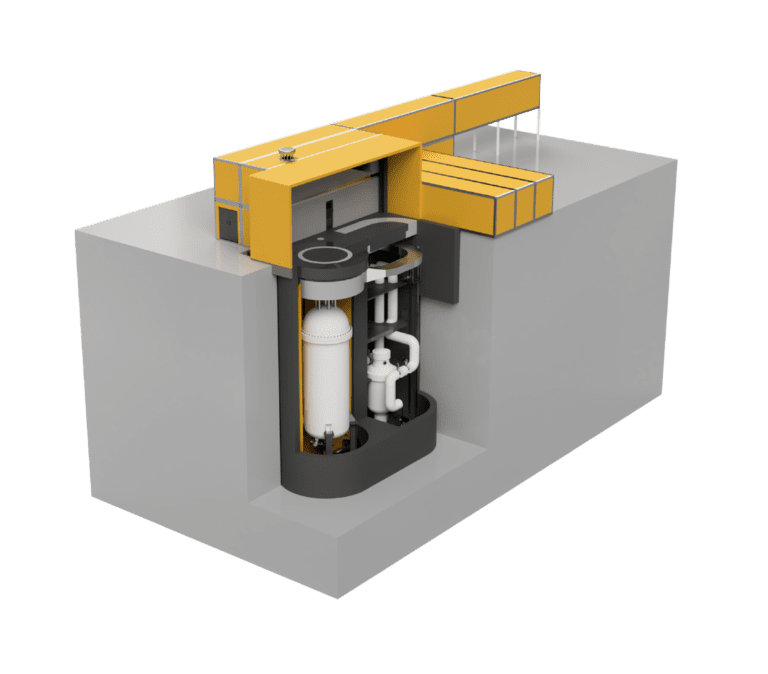
Atomic Show #278 – Micro-Modular Reactor (MMR) project partners USNC, GFP and OPG
Global First Power (GFP), Ultra Safe Nuclear Corporation (USNC) and Ontario Power Generation (OPG) recently announced that they had formed a joint venture called Global First Power Limited Partnership. That venture will build,…
Who said modular construction would save money on first of a kind units?
On July 27, 2015, the Wall St. Journal published an article written by Rebecca Smith titled Prefab Nuclear Plants Prove Just as Expensive. That piece has been widely shared and discussed on social…
Diseconomy of scale – world’s largest canned-motor reactor coolant pump
On February 16, 2015, an AP article by Ray Henry titled Nuclear plants delayed in China, watched closely by US firms contained a short paragraph that has contributed to a number of sleepless…
GA Power announces a decision deferral until May 12
Last night, GA Power issued a terse press release stating that it will continue working on the detailed project assessment needed before it can decide whether or not to continue trying to complete…
Above board competition in energy markets finally emerging. API Ohio pushing for nuclear shutdowns
In a break from its historical tactic of quietly enabling surrogates, the US petroleum industry has started to openly engage in battles to suppress use of atomic fission. The Ohio division of the…
How would a Rockefeller crony react to Eddington’s vision of subatomic energy?
Recently an Atomic Insights reader shared a document that inspired a new line of thinking about the chronology of atomic energy development. The inspirational document was a PDF copy of a chapter titled…
Jerry Taylor of Cato Institute – Fires Back at My "Smoking Gun" Accusation That He is Opposed To Nuclear Energy BECAUSE He Prefers Natural Gas
Jerry Taylor, a senior fellow at the Cato Institute, has taken the time to produce a detailed and well-referenced rebuttal to my post titled Jerry Taylor, a Fellow at the Cato Institute, founded…
Investing in Nuclear
Nuclear investments – enabling the transition to a low-carbon economy
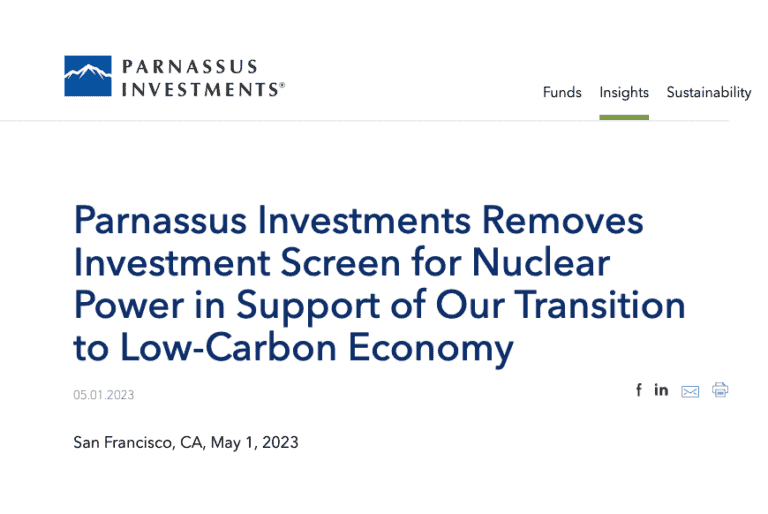
Parnassus Versus Green Century: A Contrast in Styles
Cross-posted from Nucleation Capital June, July and August of 2023 were the three hottest months the Earth has ever seen by such a large margin, it left climate scientists agog. Climate disasters are abounding apace, with the U.S. hit by 23 large-scale disasters, a record-breaking year already. In Pakistan, extreme rainfall and flooding affected 33…
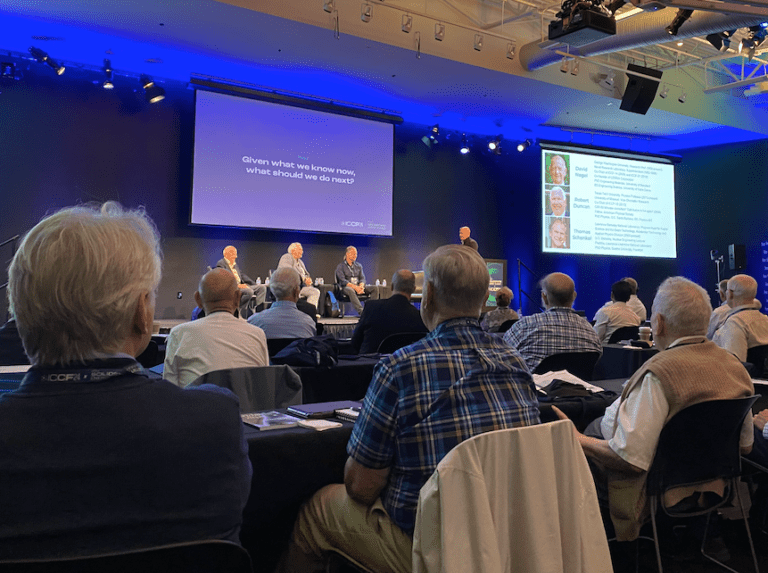
How Hot is Cold Fusion?
The 24th International Conference on Cold Fusion (ICCF24) was held at the lovely and spacious Computer History Museum in Mountain View, CA over four days in late July. As a venture investor looking at evaluating and investing in a wide range of advanced nuclear ventures, I was invited to participate and/or sponsor the event. While…

Rod Adams
Managing Partner, Nucleation Capital, a venture fund enabling broader investor access to a diverse portfolio of advanced nuclear energy and deep decarbonization ventures. Nuclear energy expert and former submarine Engineer Officer with nuclear propulsion plant experience. Founder, Adams Atomic Engines, Inc. Host and producer, The Atomic Show Podcast.
